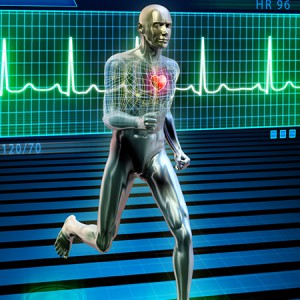General Overview
 Cardiolite stress test identifies how your heart muscles and arteries perform during physical exertion and helps in the diagnosis of coronary artery disease. The test is performed to detect the blockages in the arteries that carry oxygen-rich blood to the heart. During exercise, the heart requires a large amount of blood supply which may be hindered when there are blockages in the arteries. Cardiolite stress test analyzes such blockages and the doctor suggests an appropriate treatment.
Cardiolite stress test identifies how your heart muscles and arteries perform during physical exertion and helps in the diagnosis of coronary artery disease. The test is performed to detect the blockages in the arteries that carry oxygen-rich blood to the heart. During exercise, the heart requires a large amount of blood supply which may be hindered when there are blockages in the arteries. Cardiolite stress test analyzes such blockages and the doctor suggests an appropriate treatment.
How It’s Done
The test usually takes 3-4 hours to complete. After noting down brief history, a Nuclear Medicine technologist starts an IV line in the patient’s arm. Then, they inject a radioactive compound called Cardiolite which allows for the ability to obtain images of the heart after circulating in the body for about 30 minutes. Then you undergo stress portion of the test where you walk on the treadmill. A second dose of cardiolite will be injected once the target heart rate is reached which is allowed to circulate throughout the body for about 60 seconds. The comparison of the two sets of images will determine the condition of blood flow to the heart.To determine whether your heart gets enough supply of blood at increased levels of activity, the following tests may prove to be useful:
- Treadmill stress test: This measures your heart rate and EKG changes while walking on a treadmill.
- Dobutamine or Persantine/Lexiscan Nuclear Stress Test: In this test, people who are unable to exercise, are injected with a drug called Dobutamine to increase the heart rate or persantine/lexiscan is used to mimic changes in the arteries around the heart similar to as if you were exercising.
- Stress echocardiogram (Exercise or Dobutamine): In this test, baseline echocardiogram is obtained to visualize the movements of heart walls. Then the patient exercises or gets dobutamine through the iv if he cannot exercise, then echocardiogram is repeated. The 2 sets of pictures are compared which helps in determining if there could be any blockages in the arteries around the heart.
